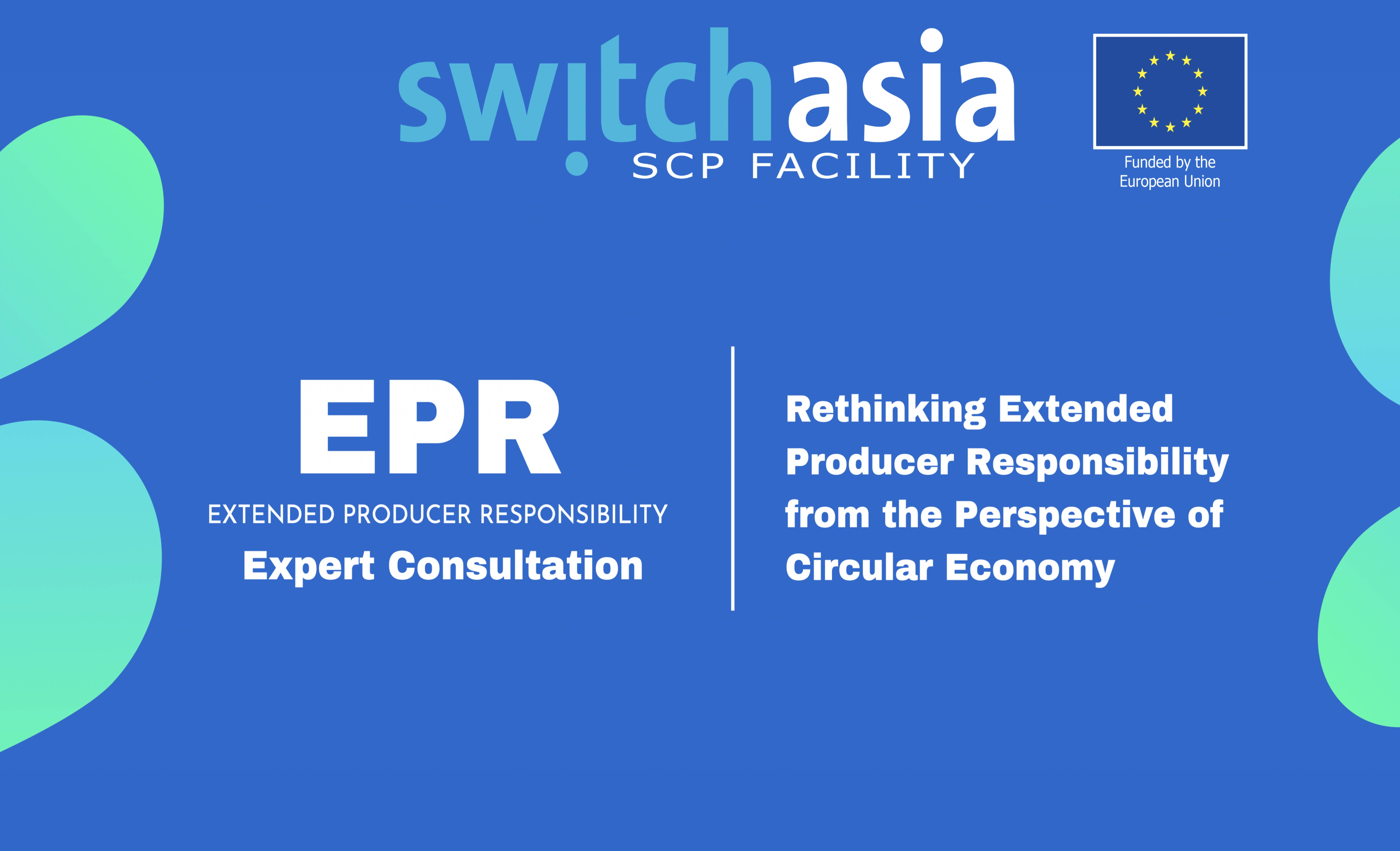
When: 3 October 2022 I Time: 13:30-15:30 (Bangkok Time) I Closed-door Event
Background
Since the late 1980s, the concept of “Extended Producer Responsibility” (EPR) has become an established principle of environmental policy in an increasing range of countries. It aims to make producers responsible for the environmental impacts of their products throughout the product chain, from design to the post-consumer phase. It was hoped that this would relieve the burden on municipalities and taxpayers for managing end-of-life products, reduce the amount of waste destined for final disposal, and increase rates of recycling.
In a view of growing interest towards EPR in Asia, the SWITCH-Asia SCP Facility seeks to critically examine experiences of EPR application by looking at practices in a selected number of countries as well as through discussion with the experts. It is done in order to arrive at better understanding of challenges for EPR to be effective for facilitating circular economy. As such, the SWITCH-Asia SCP Facility initiated the project: Rethinking Extended Producers Responsibility (EPR) from the Perspective of Circular Economy (2022) and a report will be prepared as an output of this project. As of now, the project has gathered experiences from India, Malaysia and Thailand, as well as, relevant learnings from Europe and countries globally.
Objective
Before finalising the reporting and presenting the results, this internal expert consultation meeting is designed to get feedback from a limited group of people with particular knowledge and experiences related to EPR formulation and implementation. Any view or comment during the consultation session will be taken into account before finalising the report and presenting the results in another Pan-Asia webinar scheduled on 19th October 2022.
Outcomes
Exploring specific Asian on the ground experiences and challenges for EPR implementation covering the following points:
- Roles and accountability of critical stakeholders
- Capacity building of stakeholders
- Development of collection systems, including the role of local governments and producers
- Existing or planned EPR rules
- Costs of EPR compliance for producers
- Enforcement challenges
- Enhancing digitalization to enable circular economy
- Informal sector integration
Targeted Participants
Representatives from governmental and non-governmental agencies, brand owners, EPR and Circular Economy experts and knowledge institutes
Key Speakers
Dr. Thomas Lindhqvist, Associate Professor, IIIEE, Lund University
Thomas Lindhqvist worked with EPR and other product policies from the International Institute for Industrial Environmental Economics (IIIEE) since early 1990. He has supported producers, governments, international organisations and NGOs to develop and implement EPR for various products. He has a PhD from Lund University and worked as Associate Professor at IIIEE.
Dr. Panate Manomaivibool, Assistant Professor at Mae Fah Luang Uiversity
Panate Manomaivibool is a lecturer at the School of Science, Mae Fah Luang University. He also heads a research center, Circular Economy for Waste-free Thailand (CEWT). He works with communities, local governments, companies and NGOs for workable zero-waste solutions to advance the circular economy. Dr. Panate holds a PhD from IIIEE, Lund University.
Mr. Pranshu Singhal, Founder Karo Sambhav
Pranshu Singhal founded ‘Karo Sambhav’ which designs & implements Circular solutions for multiple waste streams by collaborating with producers/brands. He was recently conferred ‘Social Entrepreneur of the Year 2021 India’ award by Schwab Foundation, a sister organization of WEF. He has worked as Director, Digital Learning for Microsoft and as Head, Sustainability for Nokia. He is a Aspen Fellow, a Ashoka Fellow, a Chevening Fellow, and a Aspire Circle Fellow. He has a Master’s from IIIEE, Sweden.
Mr. Hun-Yang Soon, CEO Eco-Ideal Consulting Sdn. Bhd.
Founder and CEO of Eco-Ideal Consulting in Malaysia, a company specialising in waste and carbon management in Malaysia. Hun is a certified International Waste Manager (International Status) under the International Solid Waste Association. He has 22 years experiences in waste management consultancy, including EPR experiences in used tyre, e-waste and packaging waste in Malaysia.



